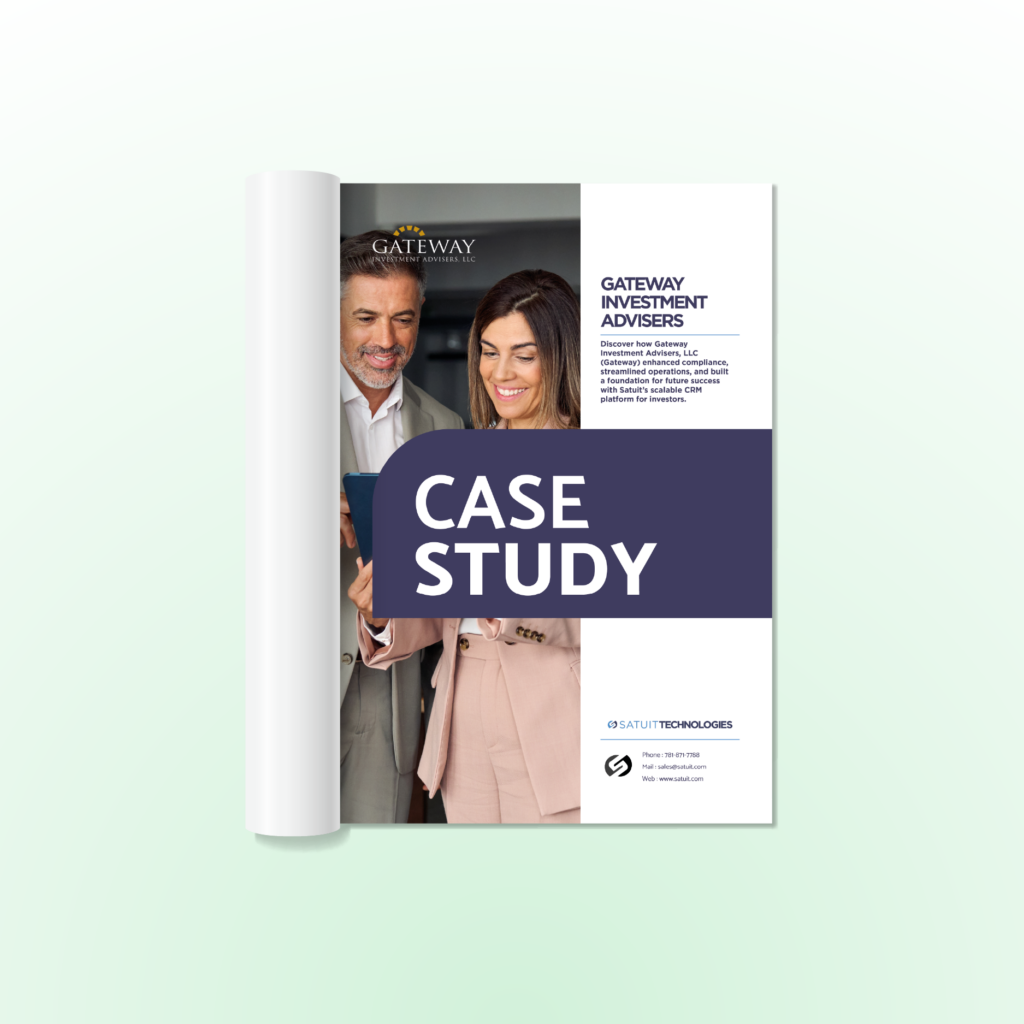Customer Relationship Management (CRM) systems are critical to the ongoing success of many investment firms. From buy-side investors and asset managers to portfolio managers navigating complex deal flows, a robust CRM solution can make all the difference.
However, merely using a CRM isn’t enough—it’s essential to assess its performance through regular CRM health checks regularly. These assessments ensure your CRM systems are running optimally, keeping your contact information accurate, simplifying lead management, and maintaining compliance.
How often should your firm conduct these assessments? And what are the key indicators that it’s time for a review? This guide covers everything you need to know about investor CRM assessments.
What is a CRM Assessment, and Why is it Important?
A CRM assessment is a thorough evaluation of your CRM software to ensure it effectively supports your firm’s goals and workflows. The goal is to ensure smooth lead management, accurate contact records, and full compliance with data regulatory requirements.
Why Your Investment Firm Needs Regular CRM Assessments:
- Lead Management: Stay efficient in tracking prospects through the pipeline. An outdated or inefficient CRM can lead to missed opportunities.
- Accurate Contact Information: Ensure you maintain clean, up-to-date details for clients, investors, and prospects.
- Compliance Requirements: Evolving regulations make compliance checks within CRM systems crucial for asset managers on the buy side.
Investment professionals, including buy-side firms and portfolio managers, rely on these assessments to avoid inefficiencies and stay competitive in their industries.
How Often Should You Conduct a CRM Assessment?
General Recommendations
For most buy-side and asset management firms, CRM assessments are recommended quarterly, semi-annually, or annually, though this schedule may vary depending on your firm’s operations.
Factors Influencing Frequency:
- Data Growth: Firms managing large volumes of data may require more frequent assessments to maintain system efficiency.
- Team or Goal Changes: If your team structures or company goals evolve, a new CRM assessment can help realign your workflows.
- Regulatory Updates: Frequent changes in regulations within the investing sector necessitate more regular CRM health checks.
When conducted regularly, these evaluations ensure CRM systems remain aligned with your lead management processes, deal flow tracking, and overall goals.
Signs It’s Time for a CRM Health Check
Even if you’re conducting regular CRM assessments, there may be times when your CRM signals the need for an immediate review. Here are some key signs to look out for:
- Outdated or Duplicate Contact Information: If client records are frequently inaccurate or repetitive, your CRM software may need to be cleaned up.
- Lead Management Challenges: Difficulty tracking prospects or opportunities through your pipeline could signal inefficiencies in your CRM solution.
- Data Security Concerns: A lack of robust data protection measures is a critical red flag for asset management firms.
- Workflow Inefficiencies: Poor user adoption and slow or unresponsive systems can negatively impact productivity.
Overlooking these signs can hinder your firm’s ability to manage deal flow effectively and maintain compliance, which might ultimately cost you valuable business opportunities.
Key Areas to Focus on During a CRM Assessment
When conducting a CRM health check, it’s important to focus on core areas that directly impact your business operations. Here’s what to evaluate:
Data Quality
- Is your contact information accurate and up-to-date?
- Are duplicate records being removed effectively?
Software Integration
- Does your CRM system integrate smoothly with other investor tools?
- Are team members engaged and consistently using the CRM correctly?
Compliance & Security
- Are your workflows aligned with regulatory requirements?
- Does your CRM prioritize data security to protect client and company information?
Alignment with Firm Needs
- Is the CRM solution tailored to support buy-side firms, deal flow monitoring, lead management, and portfolio management?
The Benefits of Regular CRM Assessments
Investing time in regular CRM health checks undoubtedly pays off by enhancing nearly every aspect of your firm’s business operations. Here are the key benefits:
- Stronger Investor Relationships: Organize and manage contact information effectively, improving communication with stakeholders.
- Optimized Deal Flow Management: Track opportunities smoothly to ensure no lead is left behind.
- Enhanced Compliance and Data Security: Remain ahead of regulatory demands and protect sensitive client information.
- Greater Team Efficiency: Streamline workflows for portfolio managers and other staff with optimized CRM systems.
By improving these fundamental areas, CRM assessments enable firms to deliver better experiences to their investors while maintaining a competitive edge.
Satuit’s is Offering Free CRM Assessments
2025 is around the corner – it’s time to elevate your CRM performance with a free CRM assessment from Satuit. Built specifically for buy-side firms, including hedge funds, private equity groups, institutional asset managers, and real estate investors, our CRM solutions are both powerful and intuitive.
What’s Included in Satuit’s Free CRM Assessment:
- Workflow Analysis: Actionable insights to improve lead management and pipeline optimization for buy-side firms.
- Compliance Checks: Ensure your CRM systems meet the latest regulatory standards.
- Expert Feedback: Detailed reviews of your current CRM solution, with recommendations for improving efficiency and security.
Contact Satuit for a Free CRM Assessment Today
Regular CRM assessments are essential for buy-side firms, asset managers, and other investment professionals who want to remain efficient, compliant, and competitive in a complex industry.
Take control of your CRM systems and realize your firm’s true potential with a free CRM assessment from Satuit. With expert insights and actionable recommendations, we’ll empower your firm to optimize workflows, protect data, and build stronger investor relationships.






